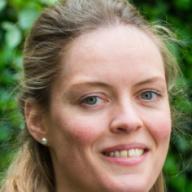 \
&
Contact us
\
&
Contact us
 \
&
Contact us
\
&
Contact us
Science with and for Society (SwafS) will help build effective cooperation between science and society, to recruit new talent for science and to pair scientific excellence with social awareness and responsibility.
Science with and for Society will be instrumental in addressing the European societal challenges tackled by Horizon 2020, building capacities and developing innovative ways of connecting science to society. It will make science more attractive (notably to young people), raise the appetite of society for innovation, and open up further research and innovation activities. It allows all societal actors (researchers, citizens, policy makers, business, third sector organisations etc.) to work together during the whole research and innovation process in order to better align both the process and its outcomes with the values, needs and expectations of European society. This approach to research and innovation is termed Responsible Research and Innovation (RRI).
The Science with and for Society (SwafS) work programme 2018-2020 shall focus on five calls for proposals in which proposals are invited against specific topics:

margot.beereboom@fwo.be
+32 2 550 15 76
Find the contact info on the site of WEWIS
The National Contact Points (NCPs) provide support, guidance, and practical information to potential applicants, helping them navigate funding opportunities and application processes.
The Programme Committee (PC) members represent their country in decision-making about the work programmes, evaluate implementation, and provide strategic input on priorities and calls.
Infosheets contain edited content on aspects related to this programme. They are reviewed at least yearly.
Related links are easy pointers towards external information. We curate the list, but are not liable for the destinations.
Documents contain additional information related to this programme, and are similar to related links.
Autoship is, as the name suggests, an acronym for autonomous ship. Just like with self-driving cars, the possibilities of an unmanned boat seem endless. It can create more efficient freight transport, around the clock deliveries and these are just a few of the examples. The project has two societal challenges.
At first, De Vlaamse Waterweg was a bit hesitant as their experience with FP7 or Horizon 2020 projects was limited and they had not been very successful up until then. The fact that they were already doing basic research on the topic of autonomous boats, and the administrative help of NCP FLanders helped De Vlaamse waterweg to cross the line and get involved.